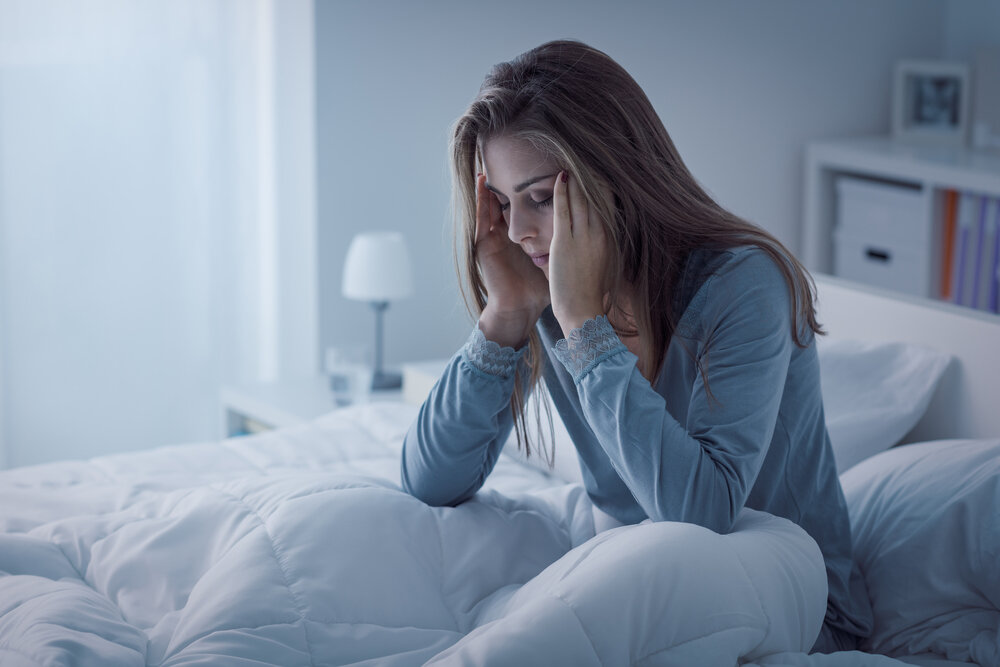Sleep disorders are conditions that impair your sleep or prevent you from getting restful sleep and, as a result, can cause daytime sleepiness and other symptoms. Everyone can experience problems with sleep from time to time. However, you might have a sleep disorder if:
- You regularly experience difficulty sleeping.
- You are often tired during the day even though you slept for at least seven hours the night before.
- You have a reduced or impaired ability to perform regular daytime activities.
There are more than 100 million Americans of all ages who are not getting an adequate amount of sleep. Sleep is very important. Not getting enough sleep can have untoward consequences on school and work performance, interpersonal relationships, health and safety.
How common are sleep disorders?
About 70 million people in the United States suffer from sleep disorders.
How many types of sleep disorders are there?
There are approximately 80 different types of sleep disorders. The top ones are:
- Insomnia.
- Sleep apnea.
- Restless legs syndrome.
- Narcolepsy.
How much sleep is necessary?
Experts generally recommend that adults sleep at least seven to nine hours per night, although some people require more and others require less.
A recent National Sleep Foundation Sleep in America poll found that adults (ages 18-54) sleep an average of 6.4 hours per night on weekdays and 7.7 hours on weekends. The poll showed a downward trend in sleep time over the past several years. People sleeping less hours tend to use the internet at night or bring work home from the office.
The National Sleep Foundation also reported that older adults (age 55-84) average seven hours of sleep on weekdays and 7.1 hours on weekends. Sleep is most often disturbed by the need to use the bathroom and physical pain or discomfort in older adults.
A downward trend in sleep time has also been observed in children. Optimal sleep time varies by age. An earlier Sleep in America poll found a discrepancy between recommended and actual sleep time in children, with actual sleep time 1.5 to two hours less than recommended. Caffeine consumption caused a loss of three to five hours of sleep and having a television in the bedroom contributed to a loss of two hours of sleep each week in children.
What happens when a person doesn’t get enough sleep?
Not getting the proper amount or quality of sleep leads to more than just feeling tired. Sleepiness interferes with cognitive function, which can lead to learning disabilities in children, memory impairment in people of all ages, personality changes and depression.
People who are deprived of sleep experience difficulty making decisions, irritability, have problems with performance, and slower reaction times, placing them at risk for automobile and work-related accidents. Sleep loss can also adversely affect life by contributing to the development of obesity, diabetes and heart disease.
What causes sleep disorders?
Sleep problems can be caused by various factors. Although causes might differ, the end result of all sleep disorders is that the body’s natural cycle of slumber and daytime wakefulness is disrupted or exaggerated. Eight factors include:
- Physical (such as ulcers).
- Medical (such as asthma).
- Psychiatric (such as depression and anxiety disorders).
- Environmental (such as alcohol).
- Working the night shift (this work schedule messes up “biological clocks.”)
- Genetics (narcolepsy is genetic).
- Medications (some interfere with sleep).
- Aging (about half of all adults over the age of 65 have some sort of sleep disorder. It is not clear if it is a normal part of aging or a result of medicines that older people commonly use).
What are the symptoms of sleep disorders?
You might have a sleep disorder if you experience one or more of the following symptoms. Do you:
- Fall asleep while driving?
- Struggle to stay awake when inactive, such as when watching television or reading?
- Have difficulty paying attention or concentrating at work, school, or home?
- Have performance problems at work or school?
- Often get told by others that you look sleepy?
- Have difficulty with your memory?
- Have slowed responses?
- Have difficulty controlling your emotions?
- Need to take naps almost every day?
How are sleep disorders treated?
There are a variety of treatments recommended by healthcare providers:
- Counseling: Some sleep specialists recommend cognitive behavior therapy. Such counseling helps you “recognize, challenge and change stress-inducing thoughts” that can keep you awake at night.
- Medications and/or supplements.
- Practice sleep hygiene such as keeping a regular sleep schedule.
- Get regular exercise.
- Minimize noise.
- Minimize light.
- Manage the temperature so that you’re comfortable.


